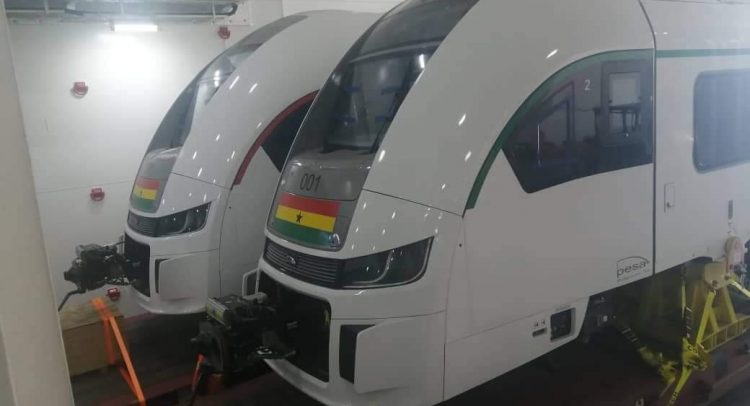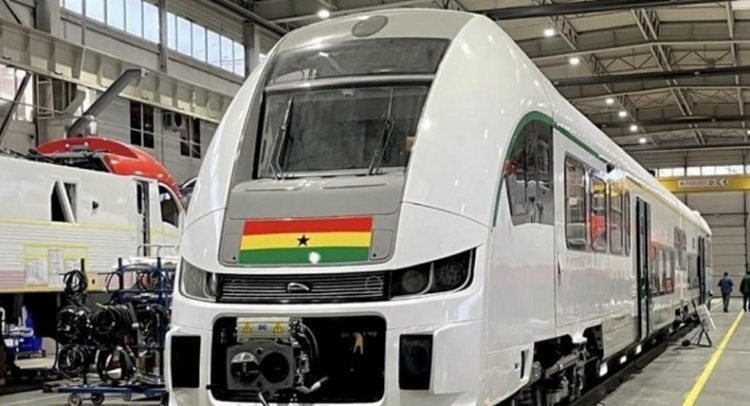
The first batch of 12 state-of-the-art trains assembled in Poland for railway transportation in Ghana has arrived at the Tema Port.
This marks a significant moment for Ghana’s transportation sector and will be used on the new Tema-Mpakadan standard-gauge railway line.
The 97 km standard-gauge railroad, known as the Tema-Mpakadan railway line, will facilitate the movement of goods and people along the Eastern corridor of Ghana. It is part of a larger plan for a 1000 km Ghana-Burkina Faso interconnectivity project, connecting Ouagadougou to the Port in Tema.
The development of the railway line is almost complete, with a projected completion date of 2024.
The train will transport passengers from Mpakadan through Kpong, Juapong, Doryumu to the Tema Port. From there, passengers can switch to a narrow-gauge line that will take them to the heart of Accra.
At the handing over ceremony in Poland, CEO of the Ghana Railways Development Authority, Yaw Owusu, emphasized the importance of a vibrant and efficient railway system for industrialization and development.
He expressed gratitude to the Polish manufacturer, PESA, for their support and highlighted the benefits of a long-term relationship between Ghana and PESA for future business and maintenance.
The trains, designed to operate seamlessly on both regional and long-distance lines, are the first standard-gauge rolling stock in Ghana. They are built to last for over 30 years with consistent and persistent maintenance. Ghana has signed a 5-year agreement with PESA and hopes to extend the maintenance period to 10 years.
The procurement of these modern trains is part of a comprehensive framework contract between Ghana Railways and PESA, with the option to order an additional 10 vehicles in the future. The introduction of these trains is expected to improve connectivity, efficiency, and passenger experience, contributing to the overall economic development served by the railway network.
With the arrival of these modern trains, Ghana’s rail sector enters a promising era of enhanced connectivity and economic growth. The government’s commitment to developing a network of 4000 km of railway across the country aligns with its industrialization agenda.
The trains will undergo system testing, trial runs, and will be commissioned by the President in June 2024.
By Vincent Kubi












Facebook
Twitter
Pinterest
Instagram
Google+
YouTube
LinkedIn
RSS